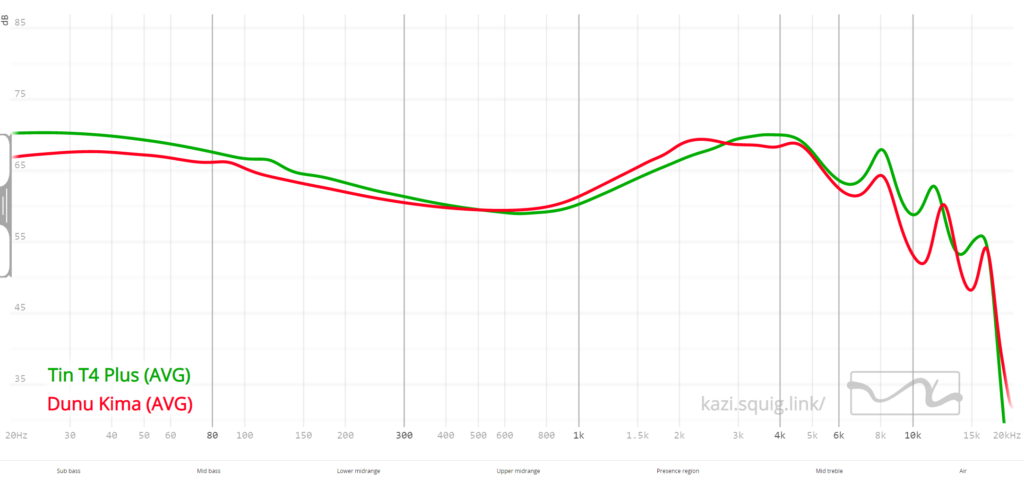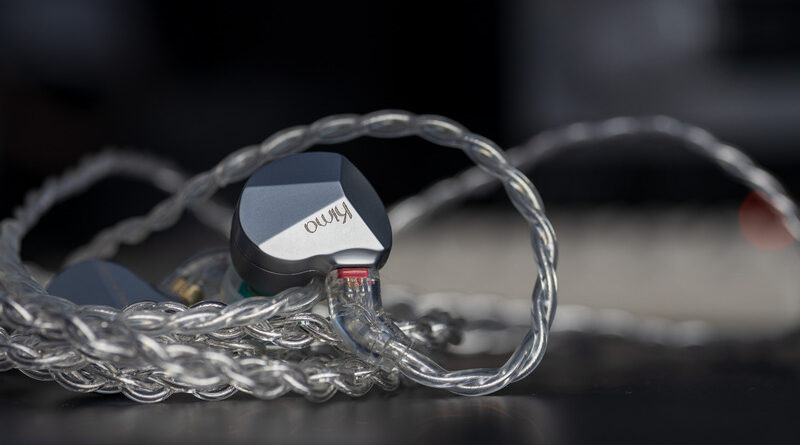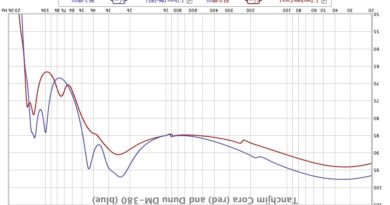Dunu Kima Review – Warm Embrace
Pros — Excellent build
– Very good accessories
– Mid-bass punch and texture
– Warm, smooth midrange
– Non-fatiguing highs
– Decent imaging and staging
Cons — Dunu Kima does not have the fastest bass
– Treble lacks air
– Not the most resolving IEMs in this price
– Instrument separation could be better
– Difficult to stand out amidst strong competitors
In this Article
INTRODUCTION
Dunu has been busy lately, trying to fill-up the price segment gaps in its lineup. The Dunu Titan S have been very well-received and offer a clarity-focused tuning that is fairly unique in the sub-USD$100 market.
Enter Dunu Kima, the slightly more expensive brethren of the Titan S that head towards the opposite direction. Whereas clarity was the name of the game for the predecessor, the Kima relies on warmth and organicness to differentiate themselves.
Is the change in tuning the only trick that the Kima can pull up their sleeves, or are there deeper changes that lie beneath? Let’s find out.
Note: the ratings given will be subjective to the price tier. Dunu was kind enough to send me the Kima for evaluation.
Sources used: Questyle CMA Twelve Master, Lotoo PAW 6000
Price, while reviewed: $109. Can be bought from Dunu’s Official Website.
PHYSICAL THINGS AND USABILITY
PACKAGING AND ACCESSORIES
Dunu has finally moved to the… err, dark side and has embraced the waifu art for the packaging of the Kima. In fact, there is a little subplot about “Criz Faction” and why the maiden on the cover is gathering the protectors of the… yeah it doesn’t work for me. I’d rather have the metal-themed cover of the Titan S thank you.
When it comes to accessories, fortunately Dunu delivers, as has become the norm. The stock cable is silver-plated copper and has excellent ergonomics. The tip collection is very good as well, with both the S&S tips (boosts vocals) and the Candy tips (more balanced across the spectrum) supplied. The carrying case is also very good, offering adequate protection and room inside.
BUILD QUALITY
The CNC-milled zinc-alloy shell is a two-piece design and offers excellent rigidity. The model name and “Criz Faction” insignia are laser-etched onto the faceplate. Dunu opts for 2-pin connectors here, with the socket being recessed into the housing, offering better strain-relief than the exposed sockets.
There are two vents on the inner side. One near the channel marking (with special airflow control mechanism) and another near the nozzle. Overall, excellent build quality, even though it’s expected nowadays.
COMFORT, ISOLATION, AND FIT
Comfort is excellent, with the Dunu Kima aiding a snug, reliable fit. Isolation is average due to the two vents.
SOURCE AND EARTIPS
The Dunu Kima are fairly easy to drive, with most budget dongles being enough. However, they seemed to scale with higher-tier sources, though not to the extent where investing into a dedicated source makes sense. I used the Candy Tips for this review.
DRIVER SETUP
Dunu opts for a 10mm DLC (Diamond-like Carbon) coated dynamic driver for the Kima. This is apparently a newer generation of the driver that has an improved voice coil. A competent driver that aligns well with the price bracket without breaking new grounds.
TONALITY AND TECHNICALITIES
Dunu Kima have a warm, smooth tuning that focuses more on the timbre than absolute clarity.

What is most noticeable on the Kima is the density of notes. This is not very common in chi-fi nowadays where the “mid-bass bad” tuning philosophy has managed to butcher lower-midrange tonality in general, but the Kima is a welcome departure. The bass has good slam and sense of rhythm, the sub-bass rumble is present witout being overwhelming or hazy, and the driver is capable enough to keep the bass under control in most tracks.
Where tne Kima struggle is fast bass sections of double-pedals in heavy tracks like Lamb of God’s Ruin. Notes tend to blend into each other, blurring the outlines of each hit of the pedal or snare. Bass texture is good but not class-leading.
The lower-mids are warm, inviting, lush – the very essence of a laid-back tuning. The Kima never get fatiguing or shouty. This comes at the cost of clarity and those preferring utmost vocal forwardness might feel disappointed. Baritone vocals sound dense and grand, so do piano pieces and the occasional slow jazz. Strings could do with more bite, however, and guitar riffs lack the energy at times.
Finally, we get to the treble which is inoffensive without being spectacular. There is some upper-treble emphasis around 12kHz but that’s about it. Cymbals and hi-hats sound a bit dampened, opting for smoothness at the cost of raw resolution.
Soundstage has good depth, but the width and height are about average. Imaging is good, falling slightly short of class leaders (more on this below). Macrodynamic punch is decent, but microdynamics are where the Dunu Kima excel. Subtle gradations in volume are discernible and this makes the whole presentation feel more organic.
SELECT COMPARISONS
vs Tin T4 Plus
Tin T4 Plus are similarly warm-tilted in terms of tuning, but has a more recessed midrange and more emphasis in the treble region.

The issue with the T4 Plus lies in the technical department. The staging is wider than the Kima but not as deep. They sound less refined in the mids, and the more present treble is offset by poorer imaging and slightly worse dynamics. I think the Dunu Kima showcase a better execution of the “warm, inoffensive” tuning than the T4 Plus.
vs Dunu Titan S
Ironically, the most formidable opponent to the Kima come from within the family – Dunu Titan S. The clarity and imaging of the Titan S are a tier above the Kima, and the bass also seem faster.
However, the Titan S can sound too sterile at times, and the midrange shoutiness can be a bother – two issues the Dunu Kima avoid. I also find the Kima to have better build and accessories in general.
If it’s clarity you are after, the Titan S are better options. For those preferring warmth and easier listneing, the Dunu Kima are more suitable.
CONCLUDING REMARKS
The Dunu Kima are competent in terms of tuning, come with excellent accesories, have a great build, and the price is not too absurd.
Sadly, the market has become so saturated that it’s difficult to stand out by being “good enough”. You have to go the extra mile or offer something unique – two aspects that are sorely missing in most recent releases. The Kima are no exceptions. They are a sidegrade to the existing Titan S. A different tuning, but not a product that shifts the paradigm.
Thankfully, the Kima are pleasing to listen to, so even though they do not excite, they do not offend either. If you found the Titan S to be too sterile and clinical, give the Kima a shot. Their warmth might just convince you.
MY VERDICT
4/5
Good, but not an upgrade over their predecessors.
DISCLAIMER
Get it from DUNU Online Shop
Our generic standard disclaimer.
You find an INDEX of our most relevant technical articles HERE.







